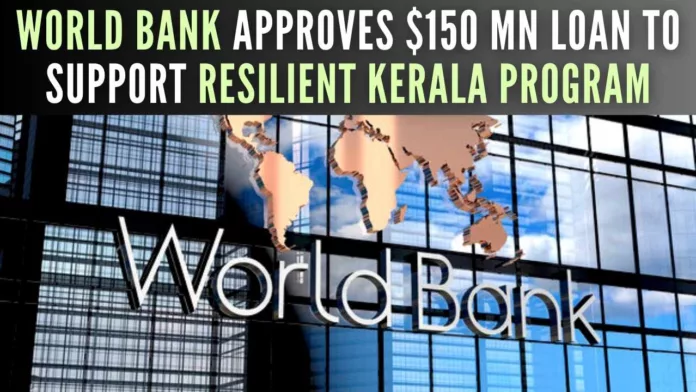
Resilient Kerala Program: World Bank accepts additional financing to build climate resilience in Kerala
Board of Directors of the World Bank has approved a $150 million loan to support the Resilient Kerala Program to continue strengthening the state’s preparedness against natural disasters, climate change impacts, and disease outbreaks.
This financing complements the World Bank’s earlier investment of $125 million and the overall support of the two projects is expected to protect nearly 5 million people from the impacts of floods.
Auguste Tano Kouame, the World Bank’s Country Director for India, said through this additional financing, the World Bank will continue supporting Kerala in increasing its resilience to climate change.
“The project will focus on addressing coastal erosion along vulnerable areas of the state – impacting millions of lives,” said Kouame.
The additional financing will expand and deepen the state’s resilience to mitigate impacts of coastal erosion by building a shoreline management plan.
The project will help the state develop a climate budget and a roadmap to help fill gaps in the state’s open data and digital systems to reduce people’s vulnerability to natural hazards. Currently, satellite maps, risk maps and sectoral data are not integrated into a single platform, leading to gaps in planning and execution of public sector investments.
After the devastating floods and landslides of 2018, the World Bank had invested in building Kerala’s capabilities to respond to shocks to the state’s economy and prevent the loss of lives, assets, and livelihoods.
The plan will assess the current and future shoreline changes in the state and create policies to address the risks to environmental resources, human settlements, and infrastructure along the coast.
[With Inputs from IANS]
PGurus is now on Telegram. Click here to join our channel and stay updated with all the latest news and views
For all the latest updates, download PGurus App.
- Myanmar authorities seize 100 Kg methamphetamine, 13 kg of ketamine in southern region - April 28, 2024
- Centre permits export of 99,150 tonnes of onion to 6 countries - April 28, 2024
- Delhi Congress chief resigns, cites party’s alliance with AAP - April 28, 2024










